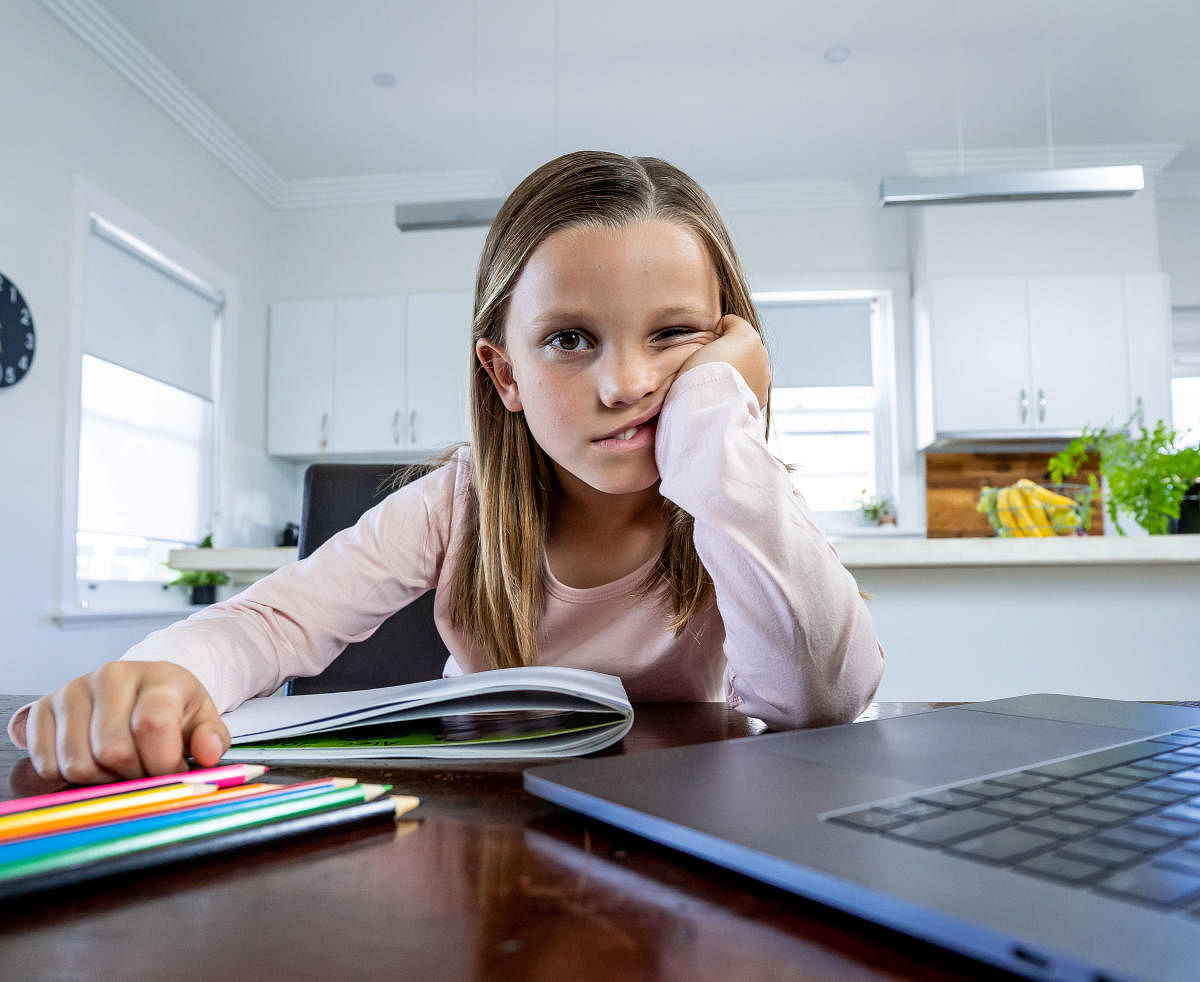
As we wait for the lockdown to get over with bated breath, we might lose sight of how silently our children are failing in their mental health standards. According to a recently-published report from China, nearly 2,000 children between second to sixth standard were studied for depression and anxiety. Out of these, about 22.6 per cent children, against a previous 17.2 per cent, reported depression symptoms while 18.9 per cent, against a previous 9.3 per cent, reported anxiety symptoms after a mean 33.7 days at home. This is not surprising, for as part of the lockdown, children are confined to the home with their regular schedules disrupted and no one has a clear idea as to when things will be back to normal.
Some of these children may face an additional burden due to separation from their parent/s because they are quarantined, or their parent/s are quarantined. Locked at home, children may experience a range of psychological issues such as anxiety, fear, worry, depression, difficulty in sleeping, and loss of appetite as well as acute stress disorder, Post-Traumatic Stress Disorder (PTSD) and grief.
Cut down social media use
With limited access to regular interactions with their friends and peers, children are increasingly resorting to online interactive platforms, such as social media. The recent discovery of Bois Locker Room and subsequent attempts to create new groups with false usernames point at the pitfalls of unregulated and unsupervised use of online platforms, especially by young adults and teens who are in a more assertive phase of their life than young children, and may indulge in risk-taking activities to garner attention of peers and assuage their own sense of purposefulness.
While we are shocked to see teenage boys discussing female bodies and crimes like gangrape in jest, and many are willing to dismiss it as a matter related to the ill-effects of lockdown on mental health of children, it only exposes the dangers of unsupervised use of social media by children who are physically and physiologically closer to becoming an adult but not mentally there yet. Such closeted discussions, now happening more than the normal as an unwarranted side-effect of online education where
children have access to unlimited data and extra time, may impair their sensibilities.
Concepts of consent and abuse may become irrelevant to those who continue to nurture themselves in such an environment, and in turn, as adults, become the partners of abusive marriages and perpetrators of
crimes like domestic violence and marital rape. Some young adults, may develop dependence on substances such as tobacco, alcohol or cannabis to beat boredom, loneliness, and emotional changes.
Positive parenting is key
As parents, it is indeed a tricky time, but open communication can solve much of the issues. Much of the Indian parents are still not comfortable discussing intimate and complex topics such as sex and personal relationship, gender politics, and patriarchal society, leaving it to the often unverified and biased information on the internet to fill their curiosity and the void. Just like there is no right time to begin discussing these concepts with your child, it is never too late as well.
Following are some ways in which parents can support their children to tide over the lockdown period:
Limit media exposure of your children, especially those that promote scientifically-unverified or alarming content. Adhere to the facts and let the children know that they are
safe with you and that you will be there for them. Watch out for repetitive reassurance-seeking — it is a sign of distress in children. If there is significant distress, contact a mental
health professional — seek teleconsultation to avoid unnecessary travel.
Find out how the children are feeling and what they are thinking about. Let them know it is okay to feel scared or unsure in the current situation. Encourage them to ask questions and
answer those honestly. Do not dismiss their worries or make false promises. Talk to them about what the family will do should anyone fall ill so that they are not worried or anxious if
anyone is taken ill. While many are happy with the regular routine, try to introduce activities to fill in the extra time outside it.
Encourage them to take up a hobby, or help in the kitchen. Ensure that things like family dinners, bedtime stories, home movie nights, as they were before coronavirus hit us, are continued — it will be reassuring for them. Extraordinary times require extraordinary measures. If the situation requires, set a new routine for the household and the child.
Make the routine collaboratively, including changes over time. Include academic work, chores, play, interaction with peers and relatives over the phone or using other forms of technology as well as family time.
Have a set time for meals and bedtime. Do not forget to include some indoor exercise such as yoga, stretches, skipping, etc.
(The author is managing trustee,
Poddar Foundation)